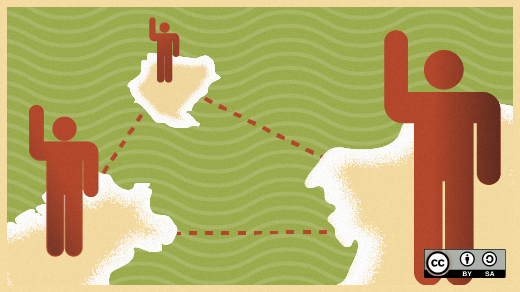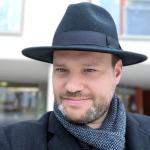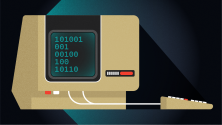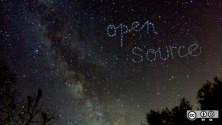Every time I tell my friends about my hobby—which became my career as the executive director at The Document Foundation—I face lots of questions. A worldwide community? Contributors around the globe? An open source community? Can you eat that?!
Well, actually sometimes you can eat it. But seriously, today, I'd like to share my very personal view about what the open source community means to me and why being active is not only fun but also benefits your whole life.
A long, long time ago…
Back in the good old days (around 2003 or 2004) when I was in my early twenties, I was a casual open source user. Flat-rate broadband connections had just become common, which suddenly made communication around the globe possible for everyone. More and more free software (not just Linux) made its way onto people's computers. Long before we had open source operating systems for smartphones and the Internet of Things, we could download open source email clients, browsers, and other software. Like many other people, my primary motivation was price, simply because the programs were free of charge. I saw hints that these applications were driven by a community, but I didn't fully understand what that meant. Since I wasn't a developer, having access to the source code was not a compelling reason for me to use open source—neither the software nor I would have gotten any advantage if I'd started coding.
From user to community member
In those early days, the idea of a free office suite was tempting, so I installed OpenOffice on my computer. More out of coincidence than a plan, I subscribed to the project's mailing list. My curiosity was much larger than my understanding, but luckily that didn't keep me from doing things.
Time went by, autumn arrived, and the inevitable trade show season started again. Without really knowing what the heck I was doing, I offered to help OpenOffice.org at a Munich trade show, even though I had neither any clue about trade shows nor about the software itself—conditions couldn't have been worse, actually. I have always been quite skeptical and a bit shy, but that probably contributed to the fact that this was the best-documented trade show we'd ever had and quite a success for us.
I also met a colleague, whom I still work closely with, who took me under his wing. He never gave me the feeling that I was a useless rookie; on the contrary, from the very beginning, I was treated as a full and respected member of the community whose opinion mattered. Soon I became responsible for things that I had never done on a professional basis. To my surprise, it was a lot of fun and ultimately started something that shaped my life very much.
Credit of trust
Unlike large corporations with their hierarchies and complex structures, in open source, I could start doing the things that interested me almost immediately. I could work in a very relaxed and easy way, which made it a whole lot of fun.
This credit of trust I received from the community is something that still touches me. After contributing in some areas—opportunities I owe to people who believed in me from the very beginning—I had the honor of meeting a wonderful human being, my mentor and good friend John McCreesh, who sadly passed away in 2016. I had the joy of working with him to shape our project's international marketing. Even today, it is hard to believe this credit of trust, and I deeply value it as a gift that is anything but usual.
Over time, I was introduced to more and more areas—along with marketing, I was also responsible for distributing files on our mirror network, co-organizing several events, and co-founding what is most likely the first German foundation tailored specifically for the open source community.
Friends around the world
Over the years I've met lots of wonderful human beings through my open source activities. Not just colleagues or contacts, but true friends who live around the globe. We not only share an interest in our community but also lots of private moments and wonderful discussions.
We don't often meet in person due to distance, but that lack of proximity doesn't affect the mutual trust we share. One of my favorite memories is of meeting a friend from Rio de Janeiro, whom I've known since early 2000 when I helped him with a problem on his Linux server. We didn't meet in person until 2013; even though we'd never been in the same room throughout our friendship and the language barriers were high, we had an amazing evening among two good friends, 10,000km from home. We are in regular contact to this day.
Broaden your mind
Having friends around the globe also gives you amazing insight and widens your scope, helping you redefine your point of view. Heading to the Vatican after a conference in Italy, my friend John once commented how fascinating it is seeing all the places free software can bring you.
During trips to foreign countries to attend conferences, my local colleagues help me learn a lot about life in other countries. I've met contributors from high-poverty countries, people with very touching personal stories, and colleagues who took long trips to English-speaking conferences despite large language barriers. I admire these people for taking these chances.
My colleagues' lives and credentials are often truly inspiring, as open source projects are open to everyone, independent of age, profession, and education. It's clear that the supposed barriers of culture, language, and time exist only in our heads—and they can be crossed in harmony. This is an important model for everyone, especially in these complicated times.
Meeting people from other cultures and learning about their lives helps me think about the world in new ways. When I read news reports about violence and war in countries where I have friends and colleagues, I worry about their well-being. Suddenly all the anonymous pain and suffering has a name and a face, and looking away is no longer an option.
A life's philosophy
To me, open source is not just a license or a development model—it's an open mentality of mutual respect for everyone, trust in newbies, appreciation and value for other people's opinions, joint goals, and shared ideals. Open source involves data privacy, civil rights, free knowledge, open standards, and much more. I often say it's a philosophy of life by its own.
Like in any social group, open source projects are full of discussions, arguments, and discrepancies—very often you'll meet strong characters and learn that email communication can lead to a lot of confusion and misunderstanding. Still, none of this disention changes the very open, motivated, and motivating attitude of contributors. This creates an incredibly welcoming and inviting environment, which (in addition to the technical aspect) reveals a wonderful, human side of things.
Reality of life
After all these years, open source has finally arrived, thanks to so many people spreading the word and living the ideals. Ten to 12 years ago, we were like aliens at trade shows, but nowadays, not only are the development and license model well recognized, but open source is an integral part of many companies' business. I'm delighted that more and more companies understand the open source model, contribute to it, act according to its principles, and therefore become an equal part of the open source community. This shows that the open source model has become mature.
I am skeptical, however, of the growing use of the term "community," as it seems any company with more than a handful of users on their platform claims membership, even if they are far more interested in marketing their product than serving the community. Nonetheless, it's great to see even conservative companies opening up to collaborate with their customers and the general public.
The future is open
Even after more than 15 years in open source, every day is a new beginning, every day is exciting, there's always something new to discover, and the number of successes grows as the challenges do.
I am quite excited and curious where things will lead—not only in the projects and the code but even more in users' and decision-makers' minds. We all benefit, at least indirectly, from the achievements of the projects and the people driving them.
I'm certain the open source community will continue bringing me in touch with new topics and connecting me to new people who'll enrich my life. I am proud and happy to be a part of this movement, which allows me to experience how mutual respect, trust, and shared ideals help move things forward.
This was originally published on Florian Effenberger's blog and is reprinted with permission.







5 Comments